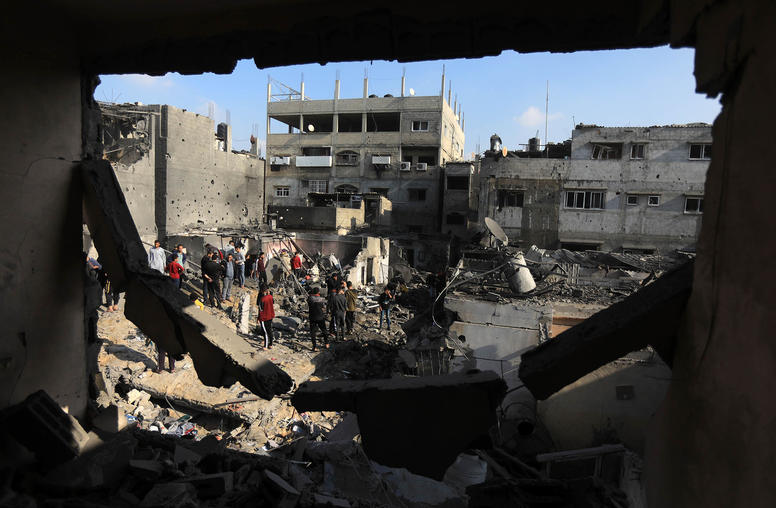Negotiating Arab-Israeli Peace: A Guidebook for American Policymakers
The U.S. Institute of Peace is pleased to announce the publication of Negotiating Arab-Israeli Peace: American Leadership in the Middle East, co-authored by Ambassador Daniel C. Kurtzer and Dr. Scott B. Lasensky. The book is a "refreshingly bipartisan evaluation" of the past three presidencies, says Foreign Affairs magazine; "today's leadership (and tomorrow's) could usefully build on the lessons presented here."
The study, designed as a guidebook for future American negotiators, offers both an insider's account and a critical assessment of American involvement in the Arab-Israeli peace process. Negotiating Arab-Israeli Peace is the product of the Institute's Study Group on Arab-Israeli Peacemaking, which brings together some of the most recognized experts on the subject: William Quandt (University of Virginia), Steven Spiegel (UCLA), and Shibley Telhami (University of Maryland and Brookings Institution).
To schedule interviews or events with the authors, please contact Meg Pierannunzi or Kay Hechler.
Archived Audio
To listen to audio or to view video, please click on the links provided below. You also can right click on the links and choose "Save Target As" or "Download Linked File." This will save the file to your computer and then allow you to play it in your media player directly. More Audio Help.
- Listen to the audio from this event.
1:22:16 - 25.7MB
Speakers
- Ambassador Daniel C. Kurtzer
former United States ambassador to Israel and Egypt and currently the S. Daniel Abraham Chair in Middle East Policy Studies at the Woodrow Wilson School of Public and International Affairs at Princeton University - Dr. Scott B. Lasensky
Acting Vice President and Senior Research Associate, Center for Conflict Analysis and Prevention




